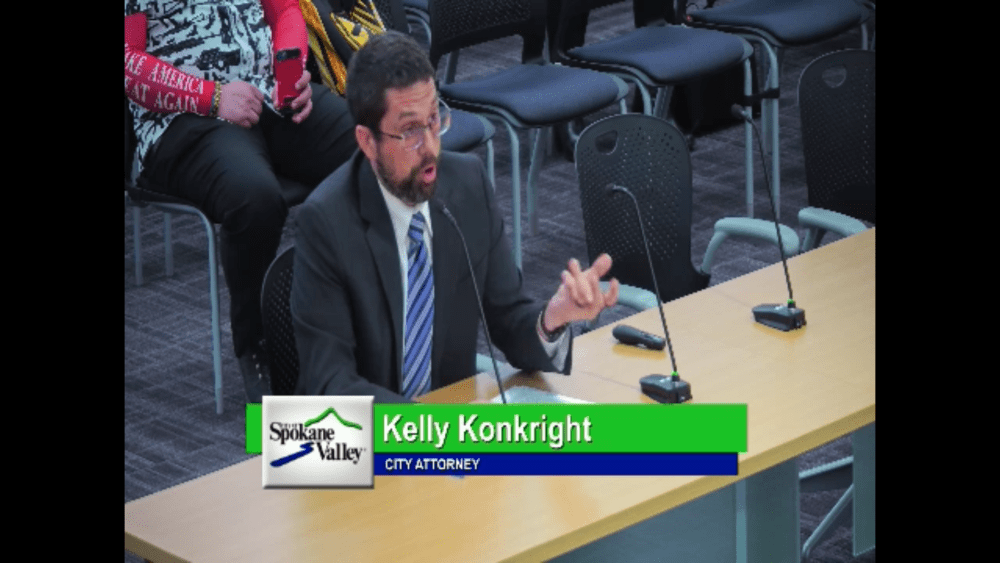(The Center Square) – The Washington House of Representatives is taking a second try at a bill that would set up an “independent” prosecutor’s office within the State Attorney General’s Office to handle criminal cases concerning police use of deadly force. The bill passed the chamber in a 53-44 vote after some contentious pushback from opponents who say the policy will only exacerbate the state’s law enforcement staffing crisis.
Rep. Jacquelin Maycumber, R-Republic, said prior to Tuesday’s vote that the state’s lack of police staffing is “not a workforce issue anymore.”
“This is a crisis in the workforce,” the lawmaker and former police officer said. “This isn’t just a training issue. This is an issue that it takes a small few people, a handful of people that have the courage to do this job, and we’ve just put another thing in front of them.”
Currently, county prosecutors hold jurisdiction over whether to pursue criminal charges against a law enforcement officer accused of misuse of force. House Bill 1579 would change that by allowing a new statewide prosecutor operating within the AGO to prosecute officers involving in a deadly use of force incident. The existing state Office of Independent Investigation is intended to conduct investigations, but does not have the authority to prosecute.
Introduced last year by Rep. Monica Stonier, D-Vancouver, HB 1579 cleared the House in a 52-44 vote and advanced all the way to the Senate Ways & Means Committee before being sent back to the House. It was reintroduced this session and referred to the Appropriations Committee, where it was voted out without a public hearing and sent to the Rules Committee.
Under the version of the bill passed by the House, it would also create an advisory board for the new prosecutor’s office made up of 11 members and require representation from defense attorneys, prosecutors, a federally-recognized tribe, a retired law enforcement officer, and relatives of those involved in a police deadly use of force incident. The advisory board would submit reports to the Legislature on cases viewed by the independent prosecutor along with any recommended changes to state law.
Stonier told colleagues on the House floor that “when deadly use of force is used by law enforcement there is concern and turmoil in the community when it is unclear what may have happened.”
She added that the bill was needed to “ensure that the community has faith in the process, to ensure that law enforcement officers get due diligence in the investigation and the outcome and to ensure that families moving forward can feel comfortable with the transparency in that process.”
Also speaking in favor of the bill just before the vote was Rep. David Hackney, D-Tukwila, who said “accountability is not anti-police. I firmly believe that they can withstand the accountability of an independent prosecutor. The rule of law requires that police officers are held just as accountable as any other criminal defendant.”
However, Republican critics said the bill sends the wrong message to prospective police recruits at a time when the state’s number of law enforcement officers per capita is the lowest in the nation.
Rep. Gina Mosbrucker, R-Goldendale, said, “I wish personally the focus would be more on making sure we’re holding criminals accountable. I think the power is best served when it’s closest to the people. We vote for a prosecutor that matches our community. We can choose to take them out and put them in.”
“We know that the state has created an atmosphere that is anti-police, anti-cop, and pro-criminal,” Rep. Jim Walsh, R-Aberdeen, said to colleagues. “We know that we have to do better by law enforcement. While this policy proposal may be well intended, it creates a level of bureaucratic oversight that we know doesn’t help fight crime in Washington. Intent is wonderful, intent is fine, but the practical effects of the decisions we make here on the floor are what the people of Washington have sent us here to rectify.”
Among stakeholders opposed to the bill is the Washington Association of Sheriffs and Police Chiefs. During the 2023 legislative session, Deputy Policy Director Taylor Gardner told the Senate Law & Justice Committee that “the perception that law enforcement officers are not regularly prosecuted is not proof that the system is corrupt. Rather, the fact that Washington’s law enforcement officers are rarely prosecuted for wrongdoing should be an indication that officers are complying with the law, training, process, procedures.”
“I think that the Legislature would feel the same if such a conclusion were made relating to legislators.”
The bill is scheduled for a Feb. 15 public hearing in the Senate Law & Justice Committee.





